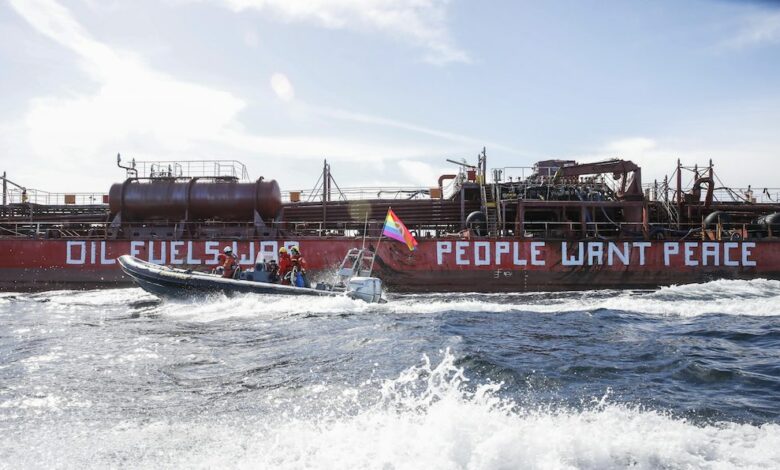Europe takes action against Russian-linked tankers

Moving Russian oil through Europe has come under far greater scrutiny in recent weeks with the bloc widely expected to take further measures against the so-called shadow fleet when further European Union sanctions are unveiled shortly.
In the southeast of the continent, the Greek navy has this month made ship-to-ship transfers impossible at one of the top European destinations for such activities. Since May 1, citing military exercises, the Greek navy has put out of bounds an area in international waters southeast of the Peloponnese islands, six nautical miles off the coast of Laconia, a patch of water that has seen Russian-linked tankers dot the horizon over the past couple of years.
In the north of Europe, meanwhile, littoral states around the Baltic, led by new NATO member Sweden, are waging a diplomatic campaign to get other countries to back a greater crackdown on Russia’s shadow fleet passing through the region, concerned about the potential for environmental catastrophe with a number of near disasters reported among the ageing fleet of tankers over the past year.
EU foreign ministers have been liasing with G7 counterparts over upcoming shipping-specific sanctions. However, one report out this week warned that unwinding the shadow fleet of tankers too quickly could cause a severe global economic shock.
The grey tanker fleet – as tracked by brokers BRS – has grown in size by 17% this year to number 787 units, equivalent to 8.5% of total tanker capacity. With more large ships classed as grey, the amount of tanker tonnage by dwt stands at a “staggering” 93.7m dwt, BRS stated in its latest tanker report, representing 13.7% of total tanker tonnage.
“Although regulators and governments are evidently keeping an eye on the grey fleet, its enormous size now arguably makes it harder to regulate since potentially excluding 13.7% of global tonnage would send tanker markets into an upward spiral, potentially causing an unwanted economic shock,” BRS warned.
BRS suggested further regulation needs to be gradual and targeted so as not to inject “undue volatility” into the markets.

We sanction the “shadow fleet” … We need the “grey” shade of its oil… What a controversial world led by a cloudy economy… in stormy times…